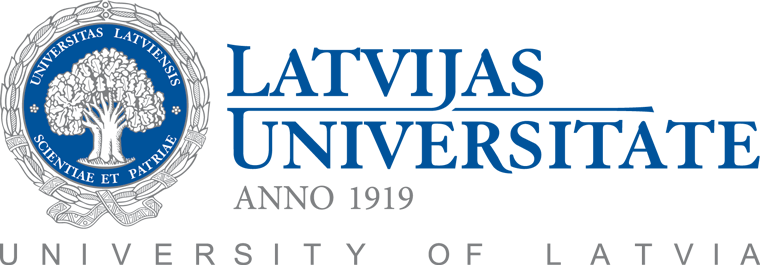Venue
CCC'17 will be held July 6-9, 2017 at the University of Latvia, Raina bulv. 19, Riga, Latvia.Program
View the CCC'17 group photo!The contributed talks will be from the morning of Thursday July 6 till noon of Sunday July 9. There will be an opening reception on Wednesday evening July 5.
The tutorial on operator scaling by Avi Wigderson will be on Thursday, Friday, and Saturday, 10:30-12:30.
Check out the live transmission here.
Watch the tutorial sessions: part 1, part 2, part 3.
The full program is here.
The excursion "Old Riga and Art Nouveau" will be on Saturday July 8, from 16:30 to 19:30.
We will discover the history of Riga and enjoy the medieval and Art Nouveau architecture with a walking tour in Riga Old Town and nearby Art Nouveau district.
The starting point of the excursion will be at the entrance of the venue.
Registration
Registration is closed!The registration fees are listed below. They include coffee breaks, reception, banquet and excursion. The early registration deadline is June 4.
| Registration Fees (EUR) | ||
| Until June 4 | June 5 or later | |
| Student | EUR 130 | EUR 160 |
| Regular | EUR 220 | EUR 280 |
You first need to register here and then pay either by credit card or by bank transfer.
Credit card Payment:
Bank transfer Payment:
Beneficiary: University of LatviaAddress: Raina blvd.19, Riga, Latvia, LV-1586
VAT number: LV90000076669
Bank: Nordea Bank AB Latvia branch
Address: K. Valdemara str. 62, Riga, Latvia, LV-1013
Account No. IBAN: LV51NDEA0000082414423
BIC code: NDEALV2X
Payment information: CCC17 (B-4805-ZP-N-231), Your-first-name Your-last-name
Travel information
For those of you traveling on a federal US grant and are subject to the Fly America Act, it is good to know that the Open Skies Agreement allows itineraries to Riga that are ticketed on one or more carriers whose flag is either the U.S. or one of the E.U. countries participating in the Open Skies Agreement. Also, make sure to check out low-cost carriers that may not show up in some of the common flight search engines.
Travel Allowances:
In order to defray the costs of attending the conference, travel allowances are offered to students and needy researchers. There are two sources: one from NSF (grant number CCF-1724073) for students from US institutions, and one from the local organizers.
Please see the application form for more details, and submit your application by May 4 for full consideration. The decisions will be announced by May 8.
Visa:
Latvia is in the Schengen Area. Nationals of EU and EEA member states are free to enter Latvia. The required travel document for entry is a national ID card or passport.
Please refer to the page of Ministry of Foreign Affairs of the Republic of Latvia for the list of nationals who NEED / DO NOT need a visa for visiting Latvia. If an invitation letter is needed, please e-mail the documents below to the local arrangements team:
- Your name and surname in capital letters as it appears in passport;
- Citizenship
- Date of birth
- Place of birth
- Affiliation and job title
- Address of residence
- Reason or purpose of entry
- The anticipated place of residence and length of stay in Latvia
- The location of the embassy where the visa application will likely be submitted
- Copy (scan) of the passport
After receiving this information, we will submit an official inquiry for visa invitation. The reviewing and acceptance takes about two to seven days. After confirmation is received, conference organizers will inform you by e-mail.
Arriving in Riga:
BY PLANERiga International Airport (RIX) is located 13 kilometers southwest of the city center. There are direct flights from many directions to RIX. You can see the list of airlines here.
There is a tourism information bureau Welcome to Riga in Sector E (Schengen area). We recommend you to visit it and take a free map of Riga. You can also purchase Riga public transport tickets, phone cards, etc. using your credit card.
From Airport (Lidosta) to the city center (Old Riga - Vecrīga)
Bus No. 22 / Minibus No.222: It costs €2 (if you buy a ticket from the driver; €1,15 if you buy a ticket ahead of time). There is a "ticket vending machine" in the bus stop. You can check the time table here / here and the route here / here.
"11.novembra krastmala" and "Autoosta" are the closest stops to the old town.
Taxi: A queue of taxis will be waiting for you outside the arrivals area. A typical ride to Old town Riga or the city center should cost no more than €15.
BY BUS
The website is here. The bus station is very close to the old town. After leaving the bus station, you can see the old town on your left.
Two international bus companies are Ecolines and LUXExpress.
BY TRAIN
The train station is also very close to the old town. There are many different exits and so it is better to ask the direction to the old town.
There are train connections from Moscow, St. Petersburg, and Minsk. You can check the website here and time table here.
Accommodation:
There are plenty of accommodation options available in walking distance from the conference venue as it is located in the heart of the city. Many options can be found here.Getting around:
Riga is more than 800 years old. Each century has left its marks in the architecture in the Old Town and City Center, where the cultural heritage coexists with the quick pace of modern living.
From the University of Latvia, you can reach many tourist attractions by foot. A walk in the Old Town is one of the things you can't miss. See the map below with some easily reachable attractions from the conference venue.
Travel tips and more information can be found in Latvia.travel, Wikitravel and Live Riga.
Photos by Raqueline Santos
Local Organizers
- Andris Ambainis (chair), University of Latvia
- Dace Mileika, University of Latvia
- Alexander Rivosh, University of Latvia
- Raqueline Santos, University of Latvia
- Juris Smotrovs, University of Latvia
Questions?
Please email the local arrangements team.


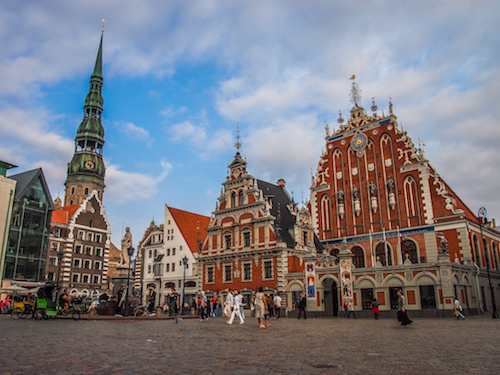 Old Town
Old Town
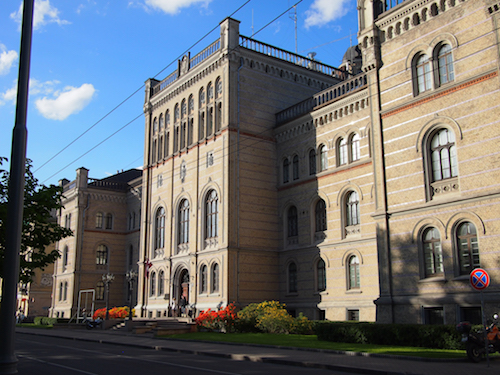 University of Latvia
University of Latvia
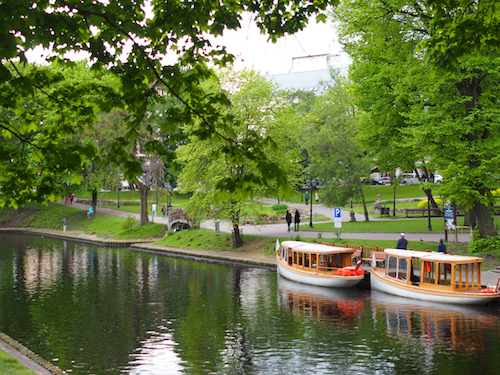 Bastejkalna Park
Bastejkalna Park
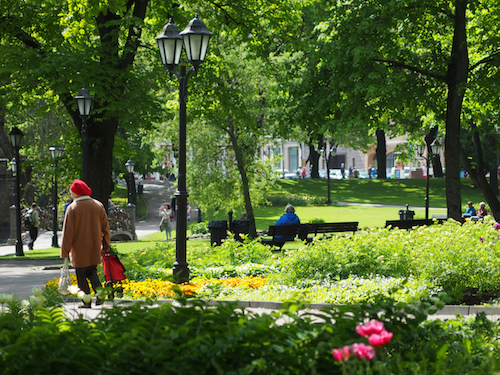 Bastejkalna Park
Bastejkalna Park
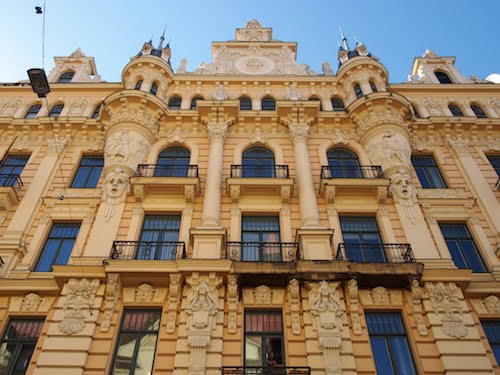 Art noveau at Alberta street
Art noveau at Alberta street
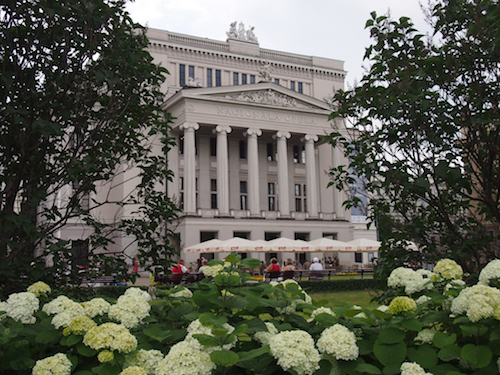 National Opera
National Opera
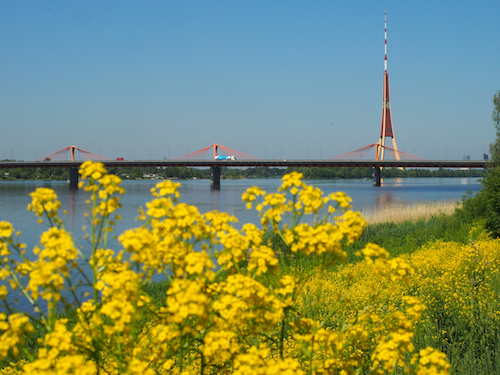 TV tower
TV tower
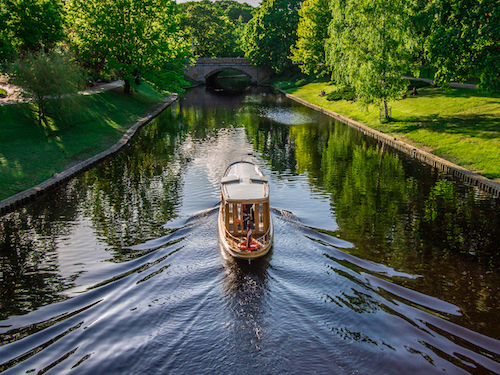 Bastejkalna Park
Bastejkalna Park
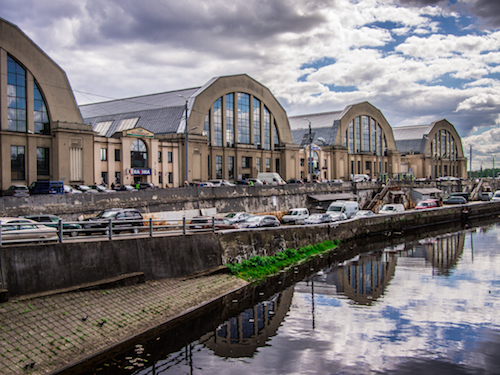 Central Market
Central Market
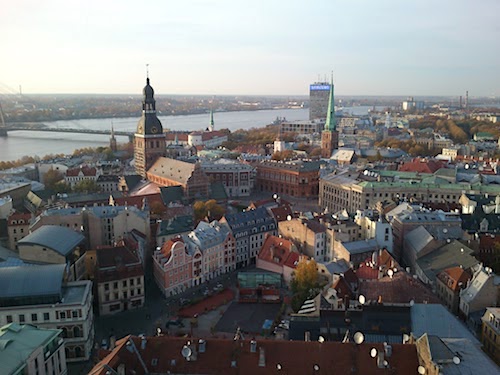 View of Old Town from the top of St Peter's Church
View of Old Town from the top of St Peter's Church



